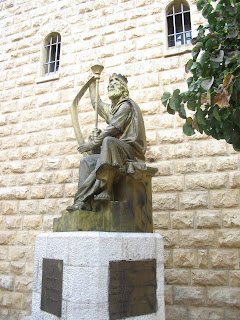1 Kings 4-7
Finally, Israel experiences peace and prosperity. The people of Judah and Israel were as numerous as the sand on the seashore; they ate, they drank and they were happy. – 1 Kings 4:20 NIV
With the wisdom that he had received from God, Solomon appointed officials to rule over the various aspects of the kingdom. He also assigned governors over twelve districts to supply his provisions which consisted of : thirty cors of fine flour and sixty cors of meal, ten head of stall-fed cattle, twenty of pasture-fed cattle and a hundred sheep and goats, as well as deer, gazelles, roebucks and choice fowl. For he ruled over all the kingdoms west of the River, from Tiphsah to Gaza, and had peace on all sides. During Solomon’s lifetime Judah and Israel, from Dan to Beersheba, lived in safety, each man under his own vine and fig tree. – 1 Kings 4:22-25 NIV
With Israel at peace, Solomon could do the one thing David was not able to do, build a temple for the Lord God. David, Solomon’s father was a man of war and not allowed to build the temple. Solomon’s reign was one of peace. This peace, coupled with ample harvests enabled Solomon buy the finest cedar and pine from Lebanon, and to hire carriers, stone cutters and craftsmen to build the temple and its furnishings. Solomon’s Temple was a magnificent structure. Nothing has been built like it since.
Solomon’s fame and wisdom spread to all the surrounding nations. He spoke three thousand proverbs, and his songs numbered a thousand and five. – 1 Kings 4:32 NIV
Among them is the following in Psalm 127
A song of ascents. Of Solomon.
Unless the LORD builds the house,
its builders labor in vain.
Unless the LORD watches over the city,
the watchmen stand guard in vain.
Solomon was building God’s temple. God was building his nation and ‘they lived in safety, each man under his own vine and fig tree.’


